
Use the ADN Prerequisite Validation webpage to complete the transfer credit process.
The Associate Degree in Nursing AAS-T has 9 prerequisites that must be completed before starting in the program.
- Applicants must have minimum of 2.0 in each prerequisite course AND a cumulative prerequisite GPA of 3.0.
- Applicants can retake courses as many times as they wish to improve their knowledge or grades.
- The highest grade will be used for GPA calculations.
There is no expiration date on prerequisites; however, it is strongly recommended that applicants re-take Anatomy and Physiology I and II if it has been longer than seven years since completing them.
Changes to Fall 2023, and beyond, cohort requirements:
- All nine prerequisite courses must be completed prior to applying.
- When taking or transferring Engl&101 or Engl 201 AND CMST 250, 252 or 280, you must have a 3.0 cumulative GPA in order to be considered.
- TEAS score is a minimum of 70% in all content areas.
Please see the below single list to ensure you’ve completed your pre-requisite courses, otherwise you will not be considered for admission to the program.
Finish these nine (9) courses before applying to the ADN program
BIOL& 241: Human Anatomy & Physiology I
BIOL& 242: Human Anatomy & Physiology II
BIOL& 260: Microbiology
CHEM& 121: Introduction to Chemistry
CMST 250: Communication in a Diverse Workplace OR CMST 252: Communication in a diverse healthcare workplace OR CMST 280: Intercultural Communication
ENGL& 101 Composition or ENGL 201 The Research Paper
Math 130 Introduction to Statistics
NUTR& 101: Nutrition
PSYC& 200: Lifespan Psychology
For all applicants, use our GPA calculator.
Bellevue College Courses
Cumulative Science Prerequisites
The following courses must be completed before applying to the Bellevue College ADN program. The grades obtained in these courses are included in calculations for the Cumulative Prerequisite Course Work GPA and the Cumulative Science GPA.
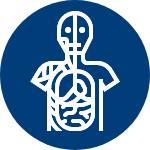
BIOL& 241: Human Anatomy and Physiology I – 6 credits
Introduces the structure and function of tissues, organs, and systems of the human body. Both BIOL& 241 and BIOL& 242 are needed for a complete study of the anatomy and physiology of all human systems. Format includes laboratory work. Fee: $62.00 200-level Science lab. College in the High School students and students in on-line classes are exempt from this fee.
- Anatomy and Physiology “Part 1” courses with lab (5 quarter credits or 3 semester credits)
- Seattle Colleges:
- BIOL& 241
- University of Washington:
- BIOL 118+119 (only if followed by B STR 301 or NURS 301)
- Anatomy and physiology lecture courses with no lab component.
- Anatomy courses with no physiology component (unless followed with physiology course)
- Physiology courses with no anatomy component (unless followed with anatomy course)
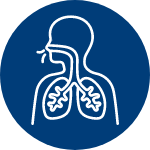
BIOL& 242: Human Anatomy and Physiology II – 6 credits
Continues the study of tissues, organs, and systems of the human body. Both BIOL& 241 and BIOL& 242 are needed for a complete study of the anatomy and physiology of all human systems. Format includes laboratory work. Fulfills a laboratory science course requirement at BC. Fee: $62.00 200-level Science lab. College in the High School students and students in on-line classes are exempt from this fee.
- Anatomy and Physiology “Part 2” courses with lab (5 quarter credits or 3 semester credits)
- Seattle Colleges:
- BIOL& 242
- University of Washington:
- NURS 301 (if preceded by BIOL 118+119), University of Washington
- B STR 301 (if preceded by BIOL 118+119), University of Washington
- Anatomy and physiology lecture courses with no lab component.
- Anatomy courses with no physiology component (unless preceded by physiology course)
- Physiology courses with no anatomy component (unless preceded by anatomy course)
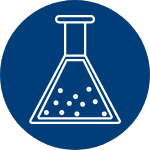
CHEM& 121: Introduction to Chemistry – 6 credits
Introduces simplified atomic and molecular theory. Students investigate the chemistry of solutions, gases, liquids, and solids and examine quantitative relationships in chemical processes. Format includes lecture, discussion, and laboratory. Fee: $48.00 100-level Science lab. College in the High School students and students in on-line classes are exempt from this fee.
- General Chemistry courses with lab (5 quarter credits or 3 semester credits)
- Seattle Colleges:
- CHEM& 121
- CHEM& 140
- CHEM& 161
- University of Washington:
- CHEM 142
- Organic chemistry courses
- General chemistry lecture courses with no lab component
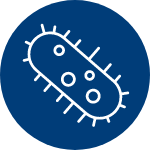
BIOL& 260: Microbiology – 6 credits
Explores structure, function, and taxonomy of microbes, including bacteria and viruses, and their relationships to health and disease. Format includes substantial laboratory work and written reporting. Fee: $62.00 200-level Science lab. College in the High School students and students in on-line classes are exempt from this fee.
- Microbiology courses with lab (5 quarter credits or 3 semester credits)
- Seattle Colleges:
- BIOL& 260
- University of Washington:
- MICROM 301+302
- Microbiology lecture courses with no lab component.
Cumulative Prerequisites
The following courses must be completed before applying to the Bellevue College ADN program. The grades obtained in these courses are included in calculations for the Cumulative Prerequisite Course Work GPA.

ENGL& 101: English Composition I – 5 credits
Develops clear, effective writing skills and emphasizes writing as a process. Students practice writing in a variety of forms and modes. Fee: $22.00 English Writing Lab (College in the High School students are exempt from this fee)
OR
ENGL 201: The Research Paper – 5 credits
Develops skills required for writing research papers. Students learn research techniques, source analysis, thesis development, argumentation styles, and summarizing. Fulfills a written communication course requirement at BC. Same as ENGL 102. Either ENGL 102 or ENGL 201 may be taken for credit, not both. Fee: $22.00 English Writing Lab (College in the High School students are exempt from this fee)
- Compositional English courses (5 quarter credits or 3 semester credits)
- Seattle Colleges:
- ENGL& 101
- ENGL& 102
- Reading/literature classes with no composition
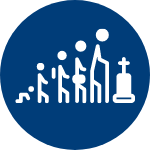
PSYC& 200: Lifespan Psychology – 5 credits
Presents research and theories regarding human growth and change across the life span. Students explore factors that affect psychosocial, cognitive, and physical development from psychological and socio-cultural perspectives. May require participation in projects. Prerequisite: PSYC& 100.
- Human Lifespan Development courses (5 quarter credits or 3 semester credits)
- Seattle Colleges:
- PSYC& 200
- University of Washington:
- NURS 201
- Washington State University:
- H_D 101
- Other unrelated psychology courses

MATH 130: Introduction to Statistics – 5 credits
Emphasis on gathering and interpreting data. Material has applications in the medical fields, as well as the Social Sciences. Fulfills the quantitative or symbolic reasoning course at BC. Prerequisite: Placement by assessment or MATH 098 with a C or better, or MATH 078 with a C or better.
- Any inferential statistics math course will fulfill this requirement (5 quarter credits or 3 semester credits).
- University of Washington:
- STAT 220
- Washington State University:
- STAT 212
- Green River College:
- MATH 256
- Psychology/business/etc. statistics courses
- These might not initially transfer as an inferential statistics course, but may be available for substitution if admitted.
Additional Prerequisites
The following courses must be completed before applying to the ADN program. The grades obtained in these courses are included in calculations for the Cumulative Prerequisite Course Work GPA, the Cumulative Science GPA and Cumulative Engl/CMST GPA.
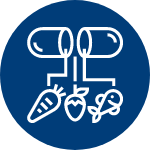
NUTR& 101: Nutrition – 5 credits
Study of human nutrition and health. Topics include digestion, absorption and processing nutrients in the body; chemistry and functions of the major nutrients: carbohydrates, fat, protein; vitamin and mineral functions; food, culture and diet, energy balance, diet and metabolism; fitness and health; nutrition of the life cycle, food safety and local and world hunger issues. Prerequisite: BIOL& 160 or CHEM& 121, or concurrent enrollment in BIOL& 160. Previously NUTR 130. Either NUTR 130 or NUTR& 101 may be taken for credit, but not both.
- Nutrition courses focusing on healthcare, chemistry, and metabolism of nutrients (5 quarter credits or 3 semester credits)
- Seattle Colleges:
- NUTR& 101
- Bellevue College and other Seattle Colleges:
- NUTR& 100
- NUTR& 101 at Bellevue College focuses heavily on the chemistry and metabolism of nutrients. Many nutrition classes at other colleges transfer in as NUTR& 100 at Bellevue College.
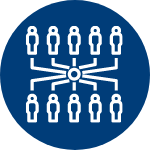
CMST 252: Communication in a Diverse Healthcare Workplace – 5 credits
This course is designed for students pursuing healthcare-related careers. Students will apply communication concepts and theory to the culturally diverse healthcare workplace, focusing on: patient-healthcare professional interactions, interacting effectively on a diverse healthcare team, organizational culture, conflict management, listening, nonverbal communication, language, giving and receiving feedback, and intercultural competence. Recommended: Placement in ENGL& 101, or higher.
Note: CMST 250 may be taken instead of CMST 252, however the preferred class is CMST 252.
OR
CMST 280: Intercultural Communication – 5 credits
Examines the relationship between culture and various aspects of the communication process. Students explore cultural identity, bias, and worldview. Students practice skills that contribute to intercultural competence in a variety of contexts.
- Communications courses focusing on communication with diverse populations (5 quarter credits or 3 semester credits)
- Bellevue College:
- CMST 250 (CMST 252 is preferred over CMST 250. However, CMST 250 is still a valid prerequisite for the Nursing AAS-T degree.)
- Seattle Colleges:
- HUM 105 International Communication
- The diverse communications requirement for Nursing must be a class that focuses on diversity. The following communications courses at Bellevue college and other Washington community/technical colleges will NOT fulfill this requirement.
- CMST& 210
- CMST& 220
- CMST& 230
- This must be a diverse communications course. Sociology, diversity, and/or language courses will not fulfill this requirement.
Last Updated March 26, 2024